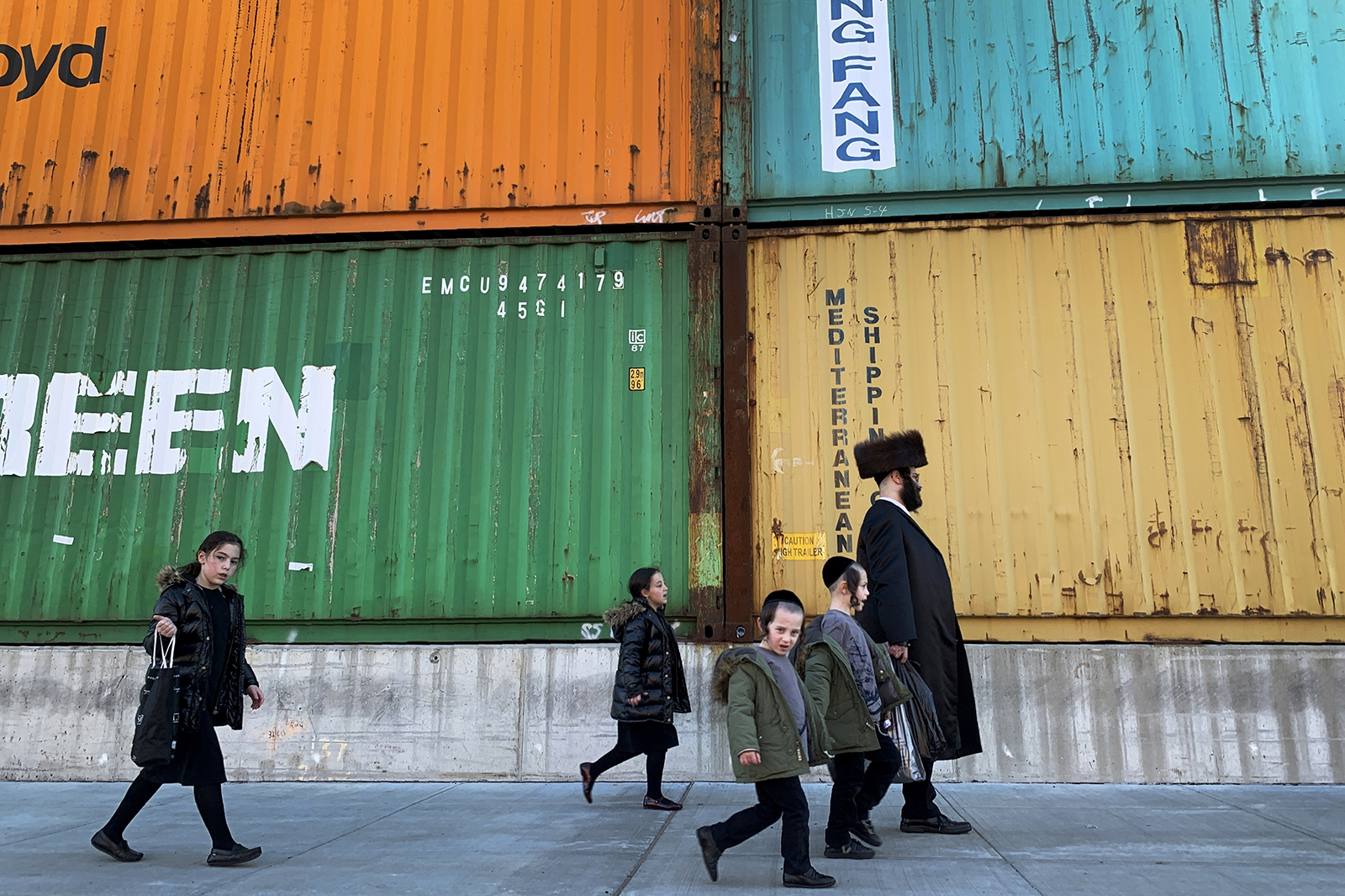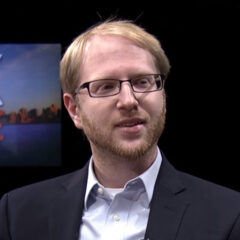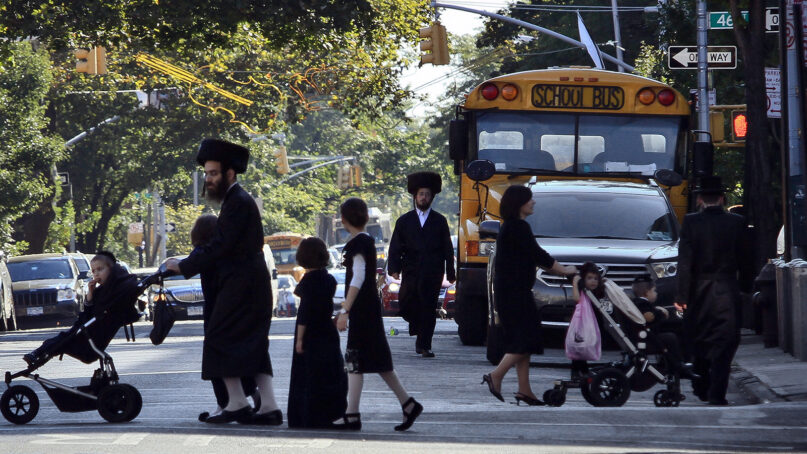NEW YORK (RNS) — Three weeks ago, the board of regents of the New York State Education Department released new regulations for nonpublic schools to make sure the education they offer, per state law, is at least “substantially equivalent” to what children get at local public schools.
Inevitably, the regulations ignited a firestorm in the Hasidic Jewish community, with allegations of infringement of religious freedom and a host of other arguments aimed at perpetuating the status quo: a school system where little or no secular learning takes place.
The deliberate denial of basic secular education to children who attend Hasidic community schools known as yeshivas is not much discussed in the American Jewish community, let alone among the general public. But this is not a small problem. In New York state alone, there are tens of thousands of students being deprived of the right to basic literacy in schools that receive state and federal funding.
Hasidic teenagers of high school age typically have never read a novel, do not understand the rudiments of science, cannot name more than a couple of American presidents and have little sense of history. Most grown men have little or no proficiency in the English language, despite being born and raised in New York. Instead, the Bible, the Talmud and Jewish law form the core curriculum.
RELATED: As Jewish movements struggle, independent rabbinical schools gain a toehold
Secular knowledge is considered irrelevant, even dangerous, by many revered Hasidic rabbis. The yeshivas set up a false binary in which the introduction of secular subjects disrespects the religious curriculum.
This lie is as transparent as it is grand. All over the world — but especially in North America — a thriving Jewish day school system prides itself on offering a dual curriculum, in which secular studies go hand in hand with a robust religious education. Far from diminishing Jewish learning, the study of math, science, social studies, literature, art and music enhances a faith in a God who created the world.
The yeshivas’ estrangement from secular knowledge is so complete that they are not even teaching the history of the Holocaust, a fact that is as shocking as it is counterintuitive. This egregious omission shows how tightly information is controlled in this insular community: Teaching the Holocaust not only raises thorny theological issues but is viewed as a distraction from the only history that matters — the ancient history of the Jewish people as recorded in the Torah and in the books of the prophets.
The failure of the Hasidic schools to teach their students Holocaust history was a pivotal piece of a lawsuit brought by Beatrice Weber, the mother of an 8-year-old boy, against Yeshiva Mesivta Arugath Habosem, the Brooklyn yeshiva he attends under the terms of Weber’s divorce from her son’s father.

In this March 30, 2021, file photo, members of the Orthodox Jewish community walk past shipping containers in the South Williamsburg neighborhood of Brooklyn, New York. (AP Photo/Wong Maye-E)
There are dozens of schools similar to Yeshiva Mesivta Arugath Habosem in New York City and New York state. I attended one myself, and I was motivated to establish Young Advocates for Fair Education, or Yaffed, in 2012, after discovering the extent and breadth of the knowledge that had been withheld from me as a student in a Hasidic yeshiva.
No matter how much I learn as an adult, I feel I can never bridge the abyss of my education gap. I am the victim of theft, my inherent right to an education stolen from me. My Hasidic yeshiva taught little English and arithmetic, and no science or history altogether. Once we entered high school, we were cut off from secular studies altogether.
As a young Hasidic child, I grew up knowing that Adolf Hitler led the German people and others to murder 6 million of my extended family, but I understood nothing about Nazism, never heard of the Third Reich, the Final Solution, Goebbels and Aryanism. No one taught me about the persecution and murder of Roma, homosexuals, the disabled, Catholic priests, Jehovah’s Witnesses, nuns or anyone else.
In Weber’s case, the lawyer representing the yeshiva had a noteworthy rebuttal to allegations that the school was not teaching the history of the Holocaust. He responded that as the school was founded by Holocaust survivors, such education was not necessary.
This mistaken premise gets to the heart of Yaffed’s mission. As the grandson of a Holocaust survivor from Kovno, I can attest to the fact that my grandfather did not teach me anything about the history of that awful era. All that I knew was the fact of his suffering.
Education does not happen by osmosis or proximity. It certainly does not happen when ignorance is perpetuated through limiting education. The Jewish community is not served by depriving people of the right to their own history, a crime being committed against an entire generation of Hasidic children.
RELATED: Duke University divided over Israel’s treatment of Palestinians — and antisemitism
Yaffed’s goal is to compel state and local officials to enforce the law, born of the Jewish imperative to pursue justice, for it is unjust to withhold knowledge. Their ignorance impacts Hasidic students’ ability to earn a living and function beyond the walls of their community.

Naftuli Moster. Courtesy photo
Yom HaShoah, Holocaust Remembrance Day, takes place on April 28 this year. As it does every year, Yom HaShoah follows the festival of Passover, when Jews around the world mark the joyful liberation of the ancient Israelites from slavery in Egypt.
In the spirit of this holiday, I call upon the leaders of the ultra-Orthodox world: Let my people learn!
(Naftuli Moster is the executive director of Yaffed. The views expressed in this commentary do not necessarily reflect those of Religion News Service.)





